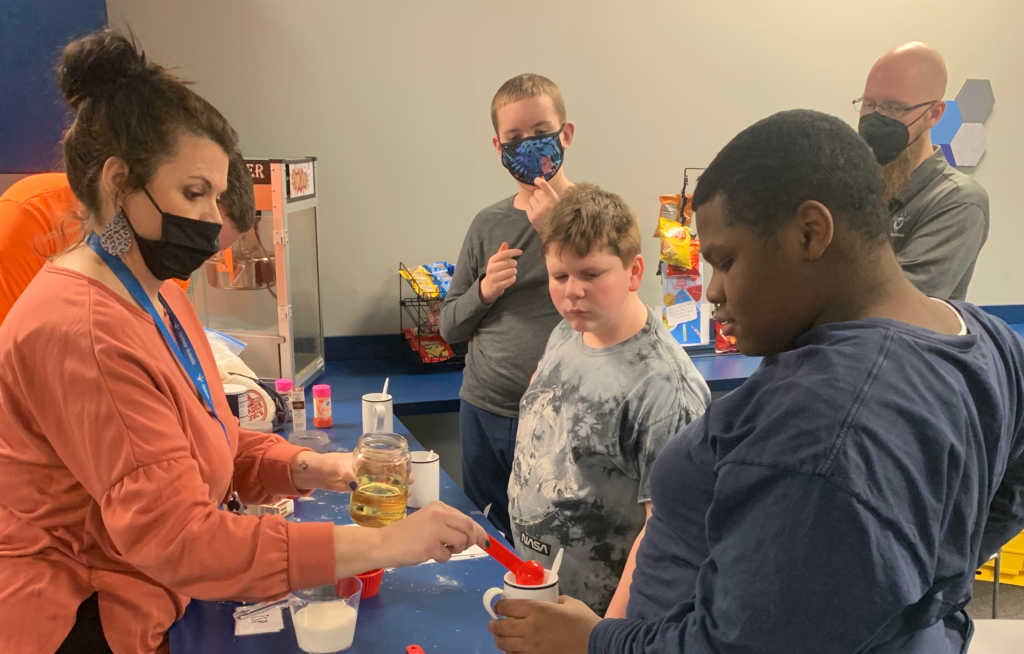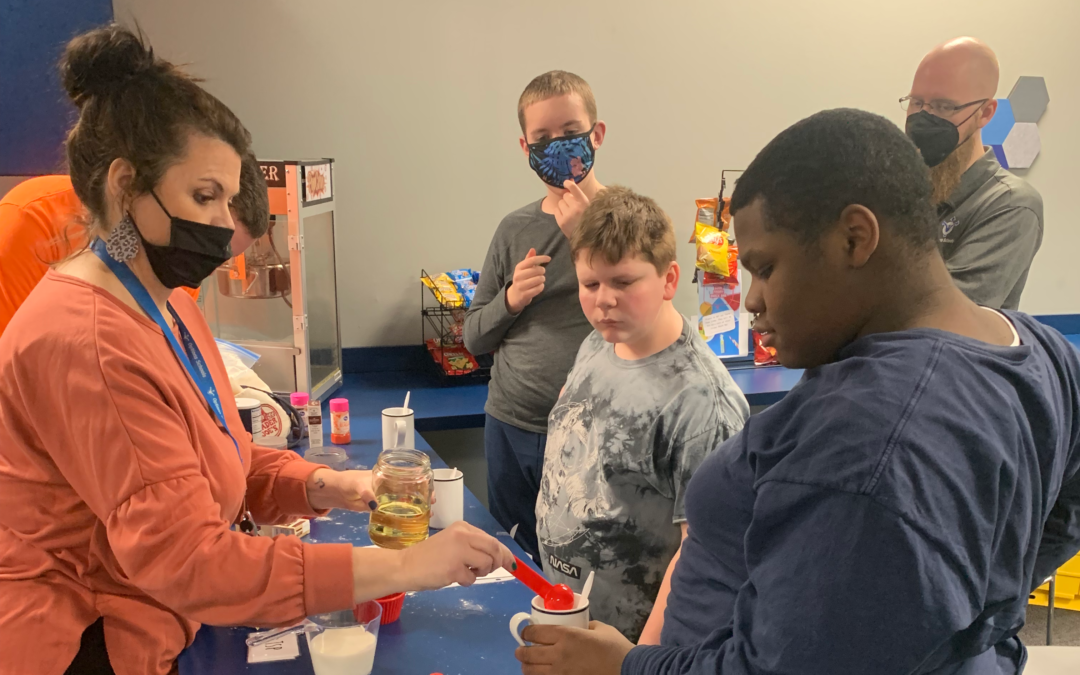Staff Spotlight: Lisa Chandler (Program Director for Options with ABA)

Lisa Chandler has been with Options since February 2019, and has served as Program Director for our Options with ABA program since September 2019. Options with ABA serves students at hybrid settings (Fishers, IN & Kokomo, IN), that provide a high-quality education in conjunction with applied behavioral analysis (ABA) therapy, in one location. Lisa has a degree from Indiana University in Education and has been working in the special education field for many years. During her time at Options, she has helped to develop Options with ABA from a pilot program, to the success that it is today.
Tell me about how you ended up in Central Indiana
I was born and raised in Indiana – it was a small, one-stoplight town called Pittsboro (west of Brownsburg, IN). That’s where I live now. My kids go to school there, two of them have already graduated high school and my youngest will be a freshman in high school next year, so I won’t be going anywhere until he graduates.
When and how did you decide you wanted a career in education?
I knew in 8th grade that I wanted to be a teacher. There was a moment, even though it sounds silly. I remember watching “The Wonder Years” and seeing the English teacher on the show that made me say, “oh yeah that’s what I want to do!” Even though it’s silly, that was my defining moment. It just always stuck. I had a nice moment with my son recently – the one who will be a freshman next year – and he told me that he wanted to be a teacher, a History teacher actually, so I am very excited about that.
What was your initial reaction to him wanting to be a teacher?
I was excited but also a little apprehensive, but he is the one that spent a lot of long Saturdays with me in my classroom and saw some of the behind-the-scenes stuff, so I definitely was not surprised. Education can just be so uncertain sometimes, but it seems like this is really what he wants to do.
So after 8th grade, what was your trajectory into teaching?
Well I started college and in my freshman year I got pregnant with my first child, so I decided to take some time off of course. It was a little crazy because all of the sudden I was going to be a wife and a mom! But by the time my oldest – who is 25 now – was two I had finished my degree at IU. Once I got back into school, I was pretty dedicated to it. One of the things that these years have shown me is that I – unintentionally most times – have at times put my passion for education over my family, and that’s one of the big things that I’m working on now, finding a balance for these things. Balance can be so hard for educators because it really does take so much.
How did your path in education lead you to Options?
Originally, I started out in “gifted” classrooms, but after I took time off after having my daughter and was looking at switching positions, I answered an ad for a special education position – which in a million years I would have never thought that that is where I would have ended up. I started there when the school was first getting started up and I helped them get all their practices into place. After that, I ended up hearing about the ABA program with Options and that’s when I started with their team.
Did you always want to work with middle/high school students?
That’s a great question and one that I typically ask in interviews, but I can’t really say that I have a great answer for it because I really do enjoy aspects of every level. That’s why I enjoy my position so much now because with one student may be working on letters and numbers and with another, it may be something much more complicated.
What have you learned in your time of working with a variety of students?
At first, it was easy to want to broadcast out all the great stuff that we were getting done and helping our students achieve. What I have learned over the years is that that doesn’t matter so much because, you know, my team is incredible, and I look at it now in terms of a small gain for one of our students is really much more than that in their lives, that’s what I think matters most. Sometimes I’ll share a story with someone “from the outside” and they’ll be like “oh, cool” but it is really much bigger than that. It can be hard when people don’t quite understand the difference we are making in this building because the achievements look different, but I have grown to be okay with that because I know how serious those achievements are and what it took those students to get there.
For example, one of our teachers started a coffee cart with a couple of students. Keep in mind that some of these students are non-verbal, but there they were filling coffee orders and building skills that they can take with them and apply in the world and in their later lives! Although making a cup of coffee may not sound like a big deal, these students are learning purposeful skills, practicing communication, building confidence, and gaining a feeling of belonging each day.
What has it been like seeing the Options with ABA program grow from a small classroom to what we are now with multiple buildings and larger campuses?
Well, the new campus in Fishers (that opened in July 2021) was a huge deal. I feel like it made our students feel like “oh, we are actually at school” and I think it was a space that they could feel proud of and excited to be in. We use the term ‘Classroom Community’ and that’s really what it is, it’s a community. The students have taken to that and there is this expectation that we keep our community “clean” and well oiled.
Tell me what your perspective has been on the impact of Options with ABA
I feel like our program fills a void. It is a space where there isn’t really anything else like it. Our students feel included and welcomed, and they fit in. Overall, there is a huge push for inclusion, and in our setting, parents know that their children are accepted in their classroom community.
Also, in our day-to-day, there are so many opportunities for our students to learn because of our ratio, or the fact that our team is so dedicated and passionate. Because of this, many day to day moments become teachable moments organically.
Can you tell me more about your team?
Many people on my team have already worked with me at a previous education & ABA program. I feel very lucky that we all had that opportunity to work together for so long. They trust me as a leader and it really feels like a family. If there is ever a hole somewhere, we know it is able to be filled because everyone is great at what they do and is ready to help. Our team is so small, most people know every student’s name, and interests, and I think that is why our program is so strong–because of that overall connection. Even with the students, respecting and listening to us, the relationships feel strong.
What do you enjoy most about your role?
I love being able to truly individualize everything. In my experience with students I am able to see a situation and make it a learning experience and I think students and teachers alike have learned to trust me and respect that aspect of my teaching style and learn to use it themselves to grow.
I also love the collaborative aspect of it. Watching teachers take their knowledge and adjust it in their own way to help students learn in the best way for them. It feels more like a creative process when fully individualizing the learning process. It is for that reason that our smaller ratios are so important.
Lastly, what do you enjoy when you’re outside of school?
I love the summer and being outside and active. I like gardening, redoing furniture, and anything that will get me outside into some warmer weather!




